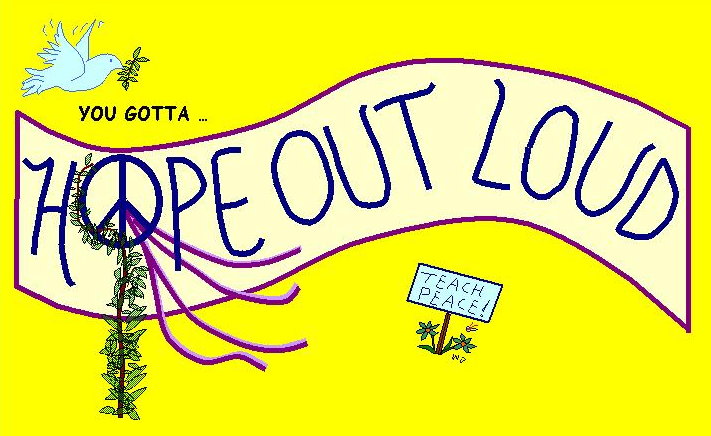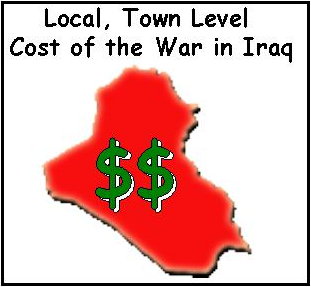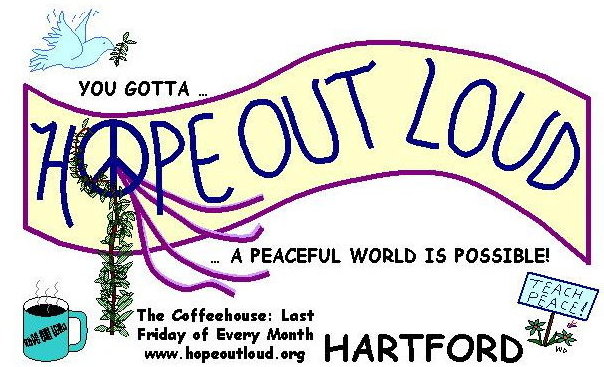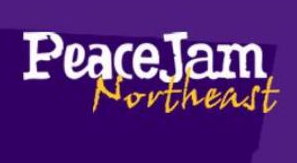 |
Connecticut Coalition For Peace and Justice |
|||||||||||
ContentsHome
|
|
Contact your legislators |
=>Joe Public Films
Standing Committees
Legislative
/ Nuclear Weapons
Alternatives
To Military Service
Hope Out
Loud
West
Hartford Public Access TV
Sub-Standard
Housing
Other Programs
Adopt a Village in
Ghana
CITGO BUY-cott
Priority Links
=>
West
Hartford Citizens For Peace
American Friends
Service Comm
Connecticut and Massachusetts Town Cost of Iraq War
Richard Sitcha
Archived Articles, Letters and Interviews
| Hartford
Advocate (CT) July 22, 2004 Section: News No Safe Haven Homeland Security granted an African refugee political asylum -- then threw him in jail. Richard Sitcha had been coming to mass at Hartford's St. Anne-Immaculate Conception church for less than two years, but everyone knew him. He attended a mass said in French -- the language of his home country, Cameroon -- and he quickly became involved in the services, reading Bible passages, leading the choir. Some of his new friends knew more about the details of his story than others: He had left Cameroon in the spring of 2001 in fear for his life, after helping the families of a group of boys who'd been killed by government security forces. He'd been arrested and tortured in prison; when he was released before trial, he fled to the U.S. He settled in Hartford in a community of African immigrants, got a working permit and a job, a Social Security card and, most important, political asylum granted by the U.S. government. Sitcha was granted asylum on Jan. 16, 2003. He celebrated at a party with his friends. He settled into his new life and began planning to bring his wife and two children -- whom he hadn't been able to see before fleeing Cameroon -- to the U.S. But to his great surprise, in September, he learned his case had been reopened. Albert Marceau, one of Sitcha's fellow parishioners, remembers seeing him at church in mid-September. Sitcha told him he had a court date that week. "I'll see you next week," he told Marceau.But the next Sunday, Sitcha wasn't at mass. "You'd always see the guy -- he'd either be doing one of the readings or leading the hymn. He was very noticeable," Marceau recently recalled. "So when he wasn't there, about five or six people gathered around Lorena Dutelle -- 'What happened?' " Dutelle was one of Sitcha's closest American friends. She's in her 60s, old enough to be the 42-year-old Sitcha's mother; he calls her "maman." A retired French teacher from South Windsor, Conn., she'd helped him prepare legal documents, translated for him in court and even driven him to New Jersey for the hearing where he had been granted asylum. Dutelle was also in court with Sitcha on Sept. 18, 2003, when the judge ruled that his original application was not credible and revoked his asylum. In the past, Sitcha would have been released pending an appeal. But under a new, tougher, post-September 11 immigration policy, he was promptly arrested and sent to jail. Since then, he's spent 10 months in two prisons, been on the verge of deportation and been beaten by a cellmate. But never, he and his friends point out, has he been charged with a crime. "He was devastated," Dutelle said of the moment federal marshals put handcuffs on her friend and led him from the courtroom. "And so was I." Since March, Sitcha has been held at the Franklin County prison in Greenfield. During a recent interview, he wore a thin white prison jumpsuit and plastic sandals; at one point in the conversation, he slipped off the left sandal to show a deep scar across the bottom of his foot. He got it, he said, from prison guards in Cameroon, who beat him across the feet with the blunt end of a machete. He wore a gold wedding band on his left hand and rosary beads around his neck. His neatly cropped hair is beginning to show signs of graying. Sitcha apologized for his poor English although, in fact, there were only a few instances in which he stumbled over his words. He brought to the interview two large envelopes filled with legal documents that he referred to as he told his story. He was animated, gesturing with his hands to make a point, wrinkling his forehead to express disbelief, holding his hands out, palms up, to emphasize how much of what's happened to him defies logical explanation. His experience has left Sitcha deeply distrustful of the legal system. At times, his suspicions borders on paranoia that the government is trying to somehow trick him, or trip him up; he worries, for instance, that some of his legal documents refer to him as "Richard Sitcha" and others as "Sitcha, Richard." He's fired one attorney who he feels mishandled his case, and while he now has a new one, he said gravely, "I don't trust no attorney again." At the start of the interview, when a corrections officer explained to him that he had to sign a release allowing the conversation to be taped, Sitcha initially refused, pointing to a release he'd previously signed agreeing to the interview. "I already signed," he said. "No more." Ironically, Sitcha worked in the legal system in his home country. He has a law degree and worked as a bailiff. In the Cameroonian legal system, which is modeled after the French, a bailiff enforces court orders and conducts legal investigations. A bailiff might work for the courts or for a private law firm, as Sitcha did. As Sitcha tells it, it was his position that led, indirectly, to his troubles. In early 2001, a group of nine young men from the Bepanda district of the city of Douala were arrested for allegedly stealing a canister of cooking gas. Crime was a major problem in Douala, Sitcha said, and in response, the government had instituted martial law. But that wasn't much of an improvement; human rights groups have found that the government security forces were abusive and often acted outside the law. Cameroon, a former French colony, is a democracy in name only. The president, Paul Biya, took office in 1997 after an election that "generally was considered by observers not to be free and fair," according to a 2003 U.S. State Department report on human rights in Cameroon. The report detailed numerous problems: a corrupt judiciary, restrictions on free speech and assembly, discrimination against ethnic minorities, labor abuses, slavery. "Security forces committed numerous unlawful killings and were responsible for disappearances," the report stated. "They also tortured, beat, and otherwise abused detainees and other prisoners, generally with impunity." Opposition politicians, human rights monitors and others would be arrested and held without charges or a trial. So the families of the arrested boys -- who became known as the Bepanda Nine -- became worried when their sons suddenly disappeared. Sitcha says the mother of two of the boys approached him, because he was from the same village she came from, and asked him to use his position within the legal system to help. He agreed, he says, but "I told her, 'You know our country.' I don't want her to say to nobody that I give her information. ... I don't want nobody to know I was involved in that." Sitcha says he asked around and was told that the boys had been killed. He suggested to the mother that the families hold demonstrations and demand to see their sons, dead or alive; the families, he says, met at his home to plan the rallies. Those demonstrations drew attention from the press and groups like Amnesty International. Despite his efforts to remain in the background, Sitcha says, he was arrested and charged with inciting violence against the government. In prison, he says, he was tortured: beaten, shocked with electrical currents. He was finally let go pending trial and, on the advice of a sympathetic prosecutor -- "He said, 'If you can find how to flee the country, save your life' " -- he ran. Sitcha's priest helped him get a visa, he says, and another friend who worked at the airport got him on a flight to Boston, where he arrived in April 2001. He settled in Hartford, where there's a significant African population. Back in Cameroon, the government eventually admitted that the boys had been killed. In a closed military trial, eight soldiers were charged with the deaths. Six were acquitted, and the others received minor sentences. It's hard to confirm many aspects of Sitcha's story. Much of it boils down to he said/she said details of a case that took place on another continent. Making it even more difficult is the fact that Sitcha says he deliberately tried to keep his role in the case secret. It's also hard to say exactly why the U.S. government, after granting Sitcha political asylum, decided his story wasn't credible and revoked his asylum. A spokeswoman for the Department of Homeland Security, which oversees immigration matters, asked the Advocate to submit its questions about the case in writing on July 2. At deadline, she had not responded to them. But court records from Sitcha's new hearing in immigration court in Hartford show the government arguing that new information about the case punched holes in his story. The prosecution offered testimony from a U.S. embassy worker in Cameroon, identified in court records as "Mr. Tiku." Testifying by phone, Tiku said he'd contacted, also by phone, several people who had offered letters in support of Sitcha's original asylum bid; they now disputed his claims, according to Tiku. According to the court records, an attorney hired by the families of the Bepanda Nine told Tiku that Sitcha had played no role in the investigation. Tiku also said he'd interviewed a priest from the archdiocese in Douala, to whom Sitcha says he submitted a report of his findings in the case; the priest, according to Tiku, also denied knowing him. In addition, Tiku said, one of the boys' mothers denied knowing Sitcha. Sitcha says there's an explanation for that: Given the government abuses in Cameroon, if an investigator called asking questions about an escaped prisoner, any cautious person would deny knowing him. He'd also asked the families to never tell anyone what he'd done for them. And the families had accepted a financial settlement from the government on the condition that they never speak of the case again, Sitcha says. Sitcha did not have the opportunity to testify in court. Judge Michael W. Straus found that Tiku's testimony raised sufficient doubts about Sitcha's claims that he had been active in the Bepanda Nine case to undercut the credibility of his case for asylum. In his ruling, Straus wondered why Sitcha's name never appeared in articles about the case, and he questioned other details, like how Sitcha was able to obtain a visa. The judge revoked his asylum, and Sitcha was imprisoned. In the past, someone who'd lost or been denied asylum would have been allowed to remain free while he filed an appeal. But Sitcha had the misfortune of being in court during a new Homeland Security pilot program in Connecticut. The program, which was designed to prevent illegal immigrants from fleeing to avoid deportation, allows the government to arrest them immediately. At the time, some attorneys called the policy unfair to people seeking political asylum, who would be treated the same as criminals. A government spokesperson, however, told the Associated Press that asylum-seekers would be kept safe while in custody. That was not the case for Sitcha. When neither he nor his church friends could come up with the $40,000 bond set by the court, he was sent to Osborn Correctional Institute in Somers, Conn., where he spent 190 days among hardened criminals, including a cellmate who beat him so badly that he spent two days in the hospital. This spring, he was transferred to the Greenfield jail, where, he says, conditions are much better. For reasons that are unclear but that apparently have to do with the souring of his relationship with his attorney at the time, Sitcha missed the deadline to file an appeal. He appeared on the verge of deportation when a friend, Andrew Cohen, a recent Wesleyan University graduate whom Sitcha had helped research a thesis on Cameroon immigrants, got involved. With the help of an American Civil Liberties Union attorney in Boston, Cohen filed a motion in U.S. District Court in Springfield in May, asking for a stay of Sitcha's deportation on the grounds that the prosecution's case had been flawed. The stay was granted by Judge Michael Ponsor. A status hearing on the case is scheduled for this week. Sitcha's friends are now working hard to bring public attention to his case. Marceau, his fellow parishioner, first wrote about the case for the Hartford Independent Media Center (www.hartfordimc.org), which has taken up the cause, organizing a teach-in about the case and calling on readers to contact federal legislators and write letters of support. "I have a big family God gave me," Sitcha said. "They support me." Apparently a deeply religious man, Sitcha believes there's a higher explanation for what he's been through. "I think it's God who gave me a mission to continue what I had done in Cameroon," he said. He's seen other imprisoned immigrants who don't have the support network or the education he does, and when he's free, he says, he'd like to help them. Throughout the interview, Sitcha repeatedly returned to the one thing that he says he cannot understand: How can the government keep him in jail when he's been charged with no crime and when he poses no risk? "I can't lie to you -- I'm very surprised for
America," he said. "I went to school; I learned
international law; I learned the American system. ... It's not
what I learned in school. I cannot understand how they can put
someone in prison for nothing." |
| http://nl.newsbank.com/nl-search/we/Archives?p_action=doc&p_docid=11674DE069771108&p_docnum=4&s_dlid=DL0107120703161401015&s_ecproduct=SUB-FREE&s_ecprodtype=INSTANT&s_subterm=Subscription%20until%3A%2012%2F14%2F2015%2011%3A59%20PM&s_subexpires=12%2F14%2F2015%2011%3A59%20PM&s_username=freeuser&s_accountid=AC0107071613141404004&s_upgradeable=no
Hartford Advocate (CT) via e-mail The Advocate's cover story "No Safe Haven" (July 22, 2004) is well written and timely. Maureen Turner's article aptly describes this gentle and spiritual man who has always helped others in need, as well as the complexities of the situation. I have come to know Richard Sitcha over the past six weeks, visiting him regularly in the Franklin County Jail and speaking with members of his Hartford community. Readers can understand how the injustices of Homeland Security measures are destroying lives as well as democratic institutions and procedures. Citizens who are as surprised or devastated as Lorena Dutelle (Richard's "maman") or as I have been by what the "justice system" has done to Richard have enough information to take action now to help right this wrong. People can help by sending donations to the American Friends Service Committee of Western Massachusetts in Florence (memo for "Richard Sitcha fund"); writing a letter of support for Richard Sitcha to Judge Michael Ponsor (Federal Building, Springfield); and writing a letter to the editor of their local paper. Suzanne R. Carlson I was pleased to see the recent Advocate article about Richard Sitcha, a political asylum seeker from Cameroon, now illegally detained under a U.S. Homeland Security pilot program. Having investigated the human rights situation in Cameroon in the summer of 1997, perhaps I can clarify several of your facts, and underscore the dubious position Mr. Sitcha has been placed in. Similar facts were provided in a sworn affidavit to Judge Michael Ponsor in June, who has recently been hearing Richard Sitcha's case. First, you wrote quite accurately that Cameroon is a democracy in name only. The Biya dictatorship revolves around petroleum, warfare and the decimation of the Congo basin forests (and wildlife), and he is very tight with multinational corporations and government officials from both France and the U.S. Cameroon is at war with Nigeria over oil, but you won't read anywhere about the "Bikassi" conflict, even if the oil fills the tanks of petrol stations in Noho. Given Richard Sitcha's human rights advocacy in defense of innocent youths disappeared by the Biya regime, anyone with any common sense in Cameroon would deny that they knew Richard Sitcha. Cameroon is in complete media whiteout in the U.S. The real travesty is that Richard Sitcha's story is so common, yet so completely unheard, that when an outlet like the Advocate carries it at last, it sounds like it is some exception to the rule, rather than the status quo for millions of innocent people, whether refugees, dissidents or legal immigrants in the U.S. and abroad. As you wrote, some U.S. government spokesman told the Associated Press that asylum-seekers would be kept safe while in custody. But how can anyone believe them? Keith Harmon Snow Copyright 2004, 2007, New Mass Media. All Rights Reserved.
|
| http://www.allthingspass.com/journalism.php?jid=107
Dear Editors & Writer I was pleased to see the recent Advocate article NO SAFE HAVEN (July 22-28) about Richard Sitcha, a political asylum seeker from Cameroon, now illegally detained under a U.S. Homeland Security pilot program. Having investigated the human rights situation in Cameroon, in the summer of 1997, perhaps I can clarify several of your facts, and underscore the dubious position Mr. Sitcha has been placed in. Similar facts were provided in a sworn affadavit to Judge Michael Ponsor in June, who has recently been hearing Richard Sitcha's case. First, you wrote quite accurately that Cameroon ?is a democracy in name only.? However, while Cameroon?s now president Paul Biya did -- as you wrote -- ?take office in 1997? after an election considered by observers ?not free and fair,? Paul Biya was formerly Prime Minister in Cameroon from 1975 to 1982, and he assumed the presidency illegally in 1982. As Prime Minister, Biya undermined state institutions, and the presidency of Amadou Ahidjo, enabling his own succession and the consolidation of absolute power that secured his now 22 year dictatorship. To say Biya has ruled "with an iron fist" is a sad understatement. Backed by France for decades, Biya?s continued ascendancy comes through a more recent alliance with the Central Intelligence Agency (see, e.g. Africa Confidential reporting on Cameroon) and his signatory participation in the euphemistic Congo Basin Forest Partnership negotiated by Colin Powell in 2003. The Biya dictatorship revolves around petroleum, warfare, and the decimation of the Congo basin forests (and wildlife), and he is very tight with multinational corporations and government officials from both France and the U.S. Biya is a close friend of Jean Cristophe Mitterand, for example, whose logging companies disseminate only terror, devastation and rape. Cameroon is at war with Nigeria over oil, but you won't read anywhere about the "Bikassi" conflict, even if the oil fills the tanks of petrol stations in Noho. Given Richard Sitcha?s human rights advocacy in defense of innocent youths disappeared by the Biya regime, anyone with any common sense in Cameroon would deny that they knew Richard Sitcha (to any journalist foolish enough to ask). Anyone from State department calling to inquire would have to go through formal channels, and State would not let them tarnish the image of the Biya "democracy", because the profits are too great and the interests too deep to offend. In case anyone hasn?t noticed, Cameroon ? like the brutal multi-decades long dictatorships of General Gnassingbe Eyadema (Togo) and Omar Bongo (Gabon) and President Obiang (Eq. Guinea) ? is in complete media whiteout in the U.S. These places are awash in blood. In Cameroon, dissidents ? which might be the most innocent and apolitical bystander ? have been tortured and taken out in oil company helicopters and dumped into the Gulf of Gunea, which is littered with oil derricks and tankers, some large percentage of which (the oil) comes to the US. Cameroonian human rights experts I spoke with, who risk their lives every single day, and yet persist, have documented special torture centers run by the military where people are taken and never heard from again. The US provides military training to Cameroonian soldiers under the Pentagon?s IMET, E-IMET and JCET programs, and others. It is not in the Pentagon?s interests to defend Richard Sitcha, (though its impossible to discern whether Mr. Sitcha?s case has received that level of attention). The real travesty is that Richard Sitcha?s story is so common, yet so completely unheard, that when an outlet like the Advocate carries it -- at last -- it sounds like it is some exception to the rule, rather than the status quo for millions and millions of innocent people, whether refugees, dissidents, or legal immigrants, in the U.S. and abroad. Richard shouldn?t have to pay anything or anyone for his freedom. If the U.S. were what so many of us think it is, we would serve freedom to Richard ? and people like him ? on a silver platter. Torture, repression and murder are sanctioned by the U.S. government at the deepest levels, no matter the political affiliation or party in the White House. (And that is unlikely to change in the near future). Sure, as you wrote, some U.S. ?government spokesman told the Associated Press that asylum-seekers would be kept safe while in custody.? But how can anyone believe them? keith harmon snow Survivor's Rights International www.survivorsrightsinternational.org © keith is an INDEPENDENT freelance journalist and investigator entirely dependent on individual donations and voluntary contributions. He has lived under the poverty line for over a decade, and he has continues to work as a volunteer for three non-profit humanitarian organizations. Without your support, he cannot continue to do this important and insightful work.
|
| http://nl.newsbank.com/nl-search/we/Archives?p_action=doc&p_docid=11674DE482645DA0&p_docnum=2&s_dlid=DL0107120703205215335&s_ecproduct=SUB-FREE&s_ecprodtype=INSTANT&s_subterm=Subscription%20until%3A%2012%2F14%2F2015%2011%3A59%20PM&s_subexpires=12%2F14%2F2015%2011%3A59%20PM&s_username=freeuser&s_accountid=AC0107071613141404004&s_upgradeable=no
Hartford Advocate (CT) Sitcha Asylum Case Takes a Bad Turn Richard Sitcha, a Cameroonian man seeking asylum in the United States, was denied release on bond last week in Springfield federal court by Justice Michael Ponsor. And, his supporters feel, he stands at great risk of being deported back to his country -- a de facto death sentence, they fear. Sitcha fled his native Cameroon in the spring of 2001. He left, he said, because he had been involved in the investigation of the murder, by government security forces, of nine young men. Sitcha settled in Hartford and applied for asylum, which was granted in January of 2003. But later that year, the U.S. government reopened his case and revoked his asylum on the argument that his story could not be verified. Since then, he's been in prison; at one jail, in Somers, Conn., he was beaten by a fellow prisoner. Since March, Sitcha has been held in the Franklin County jail in Greenfield. (See "No Safe Haven," July 22, 2004.) The results of the Sept. 10 bond hearing are worrisome to Sitcha's friends. Ponsor denied his request for release on a $10,000 bond, apparently feeling he posed a flight risk; the judge said he might release Sitcha if 10 of his supporters would put up their houses as collateral. The federal prosecutor, meanwhile, stated that the Cameroonian government was ready to take Sitcha back -- which, he and his friends maintain, would almost surely result in his torture or death at the hands of brutal government forces. Sitcha will appear before Ponsor again on Sept. 23 for a hearing on his motion opposing the revocation of his asylum. His friends are now trying to rally support for his case; for more information, seewww.freerichard.com orwww.hartfordimc.org. Copyright 2004, 2007, New Mass Media. All Rights Reserved.
|
|
FREE SPEECH RADIO NEWS Thanks to www.FSRN.org for making the daily programs available to Pacifica.org Today's lead stories: Ken Lay Indicted |
Archives of New Focus on WWUHHere are some links to Mike
DeRosa’s show, New Focus, that have Sitcha as the topic, http://www.newfocusradio.org/audio.html. Albert Marceau and Lorena Dutell on how a Cameroonian exile has been imprisoned by US Homeland Security. Listen now September 17, 2004: The Continuing Case of Richard Sitcha, Detainee. John McKenna talks about the strange case of Richard Sitcha. Richard Sitcha, a bailiff's assistant and citizen of Cameroon, was given political asylum in the US after conducting an investigation into the deaths of 9 young people in Cameroon. The US Homeland Security Agency re-opened the case and they have since imprisoned him and denied him Habeas Corpus writs and are threatening to deport him back to Cameron where he may face death. Listen now November 12, 2004: The Continuing Case of Richard Sitcha, Detainee. Albert Marceau with updates on the case of Richard Sitcha. Richard Sitcha, a bailiff's assistant and citizen of Cameroon, was given political asylum in the US after conducting an investigation into the deaths of 9 young people in Cameroon. The US Homeland Security Agency re-opened the case and they have since imprisoned him and denied him Habeas Corpus writs and are threatening to deport him back to Cameron where he may face death. Listen now Kevin Hoffkins and Albert Marceau talk about the strange case of Richard Sitcha. Listen
|
| From:
Carl Doerner Date: Fri, 24 Dec 2004 14:50:32 -0500 Subject: Richard Sitcha (As our support for Richard enters a new year and a critical phase in federal court, I want to share a more current profile of his circumstances. While we are faced with seeking new counsel which can carry the matter forward, as well as the attendant costs, I must also remind everyone that, for example, the 500 constituent signatures I have on petitions I will take soon to Rep. Olver and Senators Kerry and Kennedy and the daily inquries and suggestions from folks wanting to help all began with one outreach e-mail to us from a man in Connecticut. I particularly single out the efforts of Father Roach of Shelburne Falls who engaged his congregation and has now enlisted participation of 18 others. A suggestion today is that we seek involvement of a regional law school with our client as a project. If you have suggestions, particularly for fund-raising, please send them along...Carl) Richard Sitcha is a poster-man for the thousands of men and women incarcerated in the aftermath of 9/11. This is his story. A native of Cameroon in Western Africa, he studied and was a practicing bailiff when he came into conflict with his government. Young people (later termed the Bepanda Nine) had disappeared and their families came to him for assistance. He learned that the captives had been taken to a naval base near Douala. At the base he learned the youths had been executed. As a result of Sitcha's further attentions to the needs of the families of the victims, he says, he was arrested and tortured (beating the bottoms of his feet with a machete). The same political connections that allowed him to gather information helped him to flee Cameroon before being further charged. By all accounts, Cameroon is less than a "free" society and was, at the time, under martial law. He is 42, married, and has two children. His wife is in France and his two boys remain in Cameroon. A devout Catholic, he became an active member of St. Ann's Church of the Immaculate Conception, Hartford, where he was a resourceful, well-regarded member of the community. Arriving in the US April 27, 2001, Sitcha followed the law in applying for political refuge. He was granted asylum on January 16, 2003. He also received a social security card and work permit, and he was employed. Then, Immigration and Naturalization Services asked to reopen his case and, at a September 18, 2003, hearing, the judge said contacts had been made in Cameroon, where his story could not be verified, revoked the previously granted asylum status and, without his having committed or been charged with any crime, he was jailed. He was lodged at Osborn, Connecticut's maximum security facility, which is surrounded by hundreds of acres of jails built on what was once a Shaker farm. At Osborn he was assaulted and so badly beaten by a cell mate that he had to be hospitalized and was put on suicide watch. One unanswered question is why he was housed with hardened criminals. The more recent period of his 15-month incarceration has been at Greenfield, MA jail, where space is rented for numerous detainees of similar status. The annual budget for federal prisoners at Greenfield exceeds $1-million. According to Sitcha, his first attorney proved ineffective, failing to file documents in a timely manner, and was discharged. There is a language barrier and Sitcha's hospitalization while briefly pro se add complications. Habeas appeal of the asylum reversal and his incarceration should have been filed in appellate court. At present represented by John McKenna of Springfield, he is awaiting a ruling by Judge Ponser in Federal District Court, Springfield, as well as the government's counter motion and attempt to deport him. Reads our state department report on Cameroon, "Two forms of physical abuse commonly reported to be inflicted on non-violent political activists and anti-government detainees include the 'bastinade' in which the victim is beaten on the soles of the feet." Thus one branch of our government condemns Cameroon for torture practiced on Sitcha, while another branch would send him back for more. This begs the question: why are the INS and Justice Department eager to send Sitcha back to his tormentors? Of course, the answer must be speculative. Ordinary people often become pawns in high stakes international affairs. Ruling Cameroon for the past 22 years, President Biya is a virtual dictator who has been repeatedly criticized in these US State Department reports. Sitcha and his rapidly growing community in Connecticut and Massachusetts regard deportation as a death sentence. Cameroon, like other "places of interest" to American enterprise has significant reserves of oil and gas. In 2002, Cameroon's proven oil reserves were 400-million barrels, while natural gas reserves were 3.9-trillion cubic feet. These numbers may be dwarfed by regions with greater resources potential, yet the US scramble to control the dwindling, finite world supply invites the practice of Henry Kissinger-style realpolitik - the engaging of all agencies of government in a foreign policy based on material rather than ethical objectives. In 2003, ExxonMobil linked neighboring Chad with Cameroon in an oil pipeline that terminates at the port city of Doula. Construction was through the ancestral lands of the Bagyeli people, without compensation to them. As the wire bends, so this account ironically closes. Doula is the city in which Sitcha learned the fate of the Bepanda Nine. Through taxes we pay, the fuel for our cars, to those being held in our county jails run links in this story. All things are connected. From the standpoint that our constitutional protections make reference not to citizens but to "persons," both lay and legal opinion holds that there are numerous constitutional violations in his case. Bail for one who had significant family and social status in his home country and would return there under democratic government, and who has nothing to gain by flight, has been suggested as "supporters putting up the value of their property." While Sitcha should be freed in order to provide significant assistance in his defense, something well in excess of a million-dollar bail is thus being suggested. Judge Ponser may rule on the habeas /government motions, but the best outcome would be to allow the case to go back in time to where several errors occurred, that is, by allowing the case to return to Bureau of Immigration. McKenna's practice is limited to district court, so Sitcha need representation in his appeal process, and funds must be raised to continue the case. Among options being explored by Sitcha's supporters are amicus filings, particularly one sought from 1991 US Ambassador to Cameroon, Christine Cook, who Sitcha says participated in public demonstrations against Biya's fraudulent election, for which she was withdrawn by George H. Bush. Despite reluctance of Cameroonian persons to take the risk of supporting Sitcha, attempts are being made to obtain such contacts. In a twist on criminal procedure in which the prosecution must place the accused at the scene of a crime, in this federal case Sitcha is being required to prove a crime was committed against him - not an easy task in an undemocratic state. It is worth observing that a reported 20,000 persons per day are being held by our government under provisions of the Patriot Act, nearly all people of color or of the Muslim faith. Under the guise of national security, racism and intolerance are hard at work. Even that shifting 20,000 number masks a larger figure, as some are deported while others are rounded up. Sicha and his church community have provided some money, fund-raising has occurred, and Attorney McKenna has been generous with his help. To say Sitcha is a poster man for a cause, is to ask consideration of the scandalous constitutional abuse directed at those thousands with poor resources who are accused and imprisoned until they are flown out of the country. It is not a leap to recall the manner in which in recent years Argentine and Chilean dissidents were loaded into planes and "disappeared" at sea. Published by Traprock Peace Center
|




